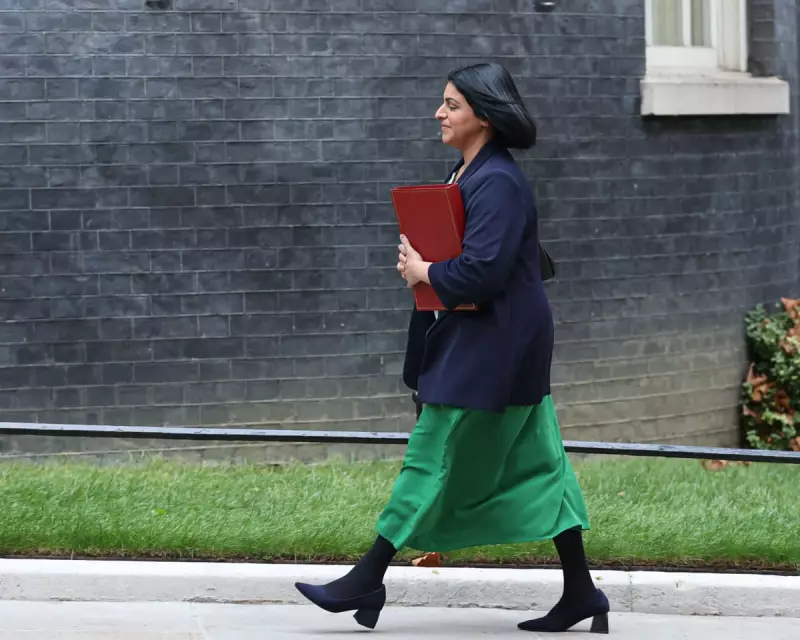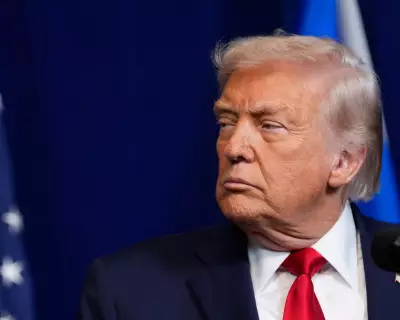
Labour MPs Revolt Against Mahmood's Asylum Approach
Home Secretary Shabana Mahmood is confronting significant internal opposition as more than two dozen Labour MPs express anger over her government's controversial asylum policies. The discontent centres on revelations that only a "few hundred" asylum seekers would be permitted entry to Britain under three newly announced refugee schemes.
Limited Numbers Spark Outcry
Mahmood had previously justified several hardline measures - including family deportations and asset confiscation from claimants - by promising to establish "safe and legal" routes for genuine refugees. However, during a Monday night statement, the Home Secretary revealed the new programmes would begin at a "modest" scale, declining to specify when or how admission numbers might increase.
The policies have drawn particular criticism for provisions allowing the forced removal of families who refuse cash incentives to return to their home countries. This approach has alarmed refugee advocates and cross-party parliamentarians alike.
Refugee Council Demands Transparency
Enver Solomon, Chief Executive of the Refugee Council, delivered a stark warning about the limitations of the proposed system. "People fleeing war, persecution and torture cannot wait months or years" for expanded safe routes, he emphasised.
Solomon argued that a system helping only "a few hundred people, with no clear expansion plan, won't stop dangerous journeys or create the orderly system the government wants. It would effectively be meaningless."
The refugee leader called for immediate clarity on annual intake numbers and a transparent timetable for scaling up capacity, noting that properly resourced safe routes could save lives and provide genuine alternatives to perilous Channel crossings.
Cross-Party Pressure Mounts
Stella Creasy, Labour MP for Walthamstow, joined the chorus of criticism, demanding greater government transparency. "Safe and legal routes are fundamental to a functioning and fair asylum system," she stated, insisting ministers must "come clean" about their plans.
The government's proposals include three main pathways: an enhanced community sponsorship scheme building on the Homes for Ukraine model, a programme for "talented and skilled individuals displaced by conflict" to work in Britain, and a study route for students facing war or persecution.
Mahmood told the Observer: "I want to stop people getting on boats. We need to change the calculus that people are making - disincentivising illegal migration while showing we have safe, legal routes that will incentivise people to come here properly."
UNHCR Raises Concerns
The United Nations Refugee Agency has cautioned against treating refugees as economic migrants. Vicky Tennant, UNHCR's UK representative, stressed that refugees require "stable status that allows them to rebuild their lives and reunite with families" while seeking long-term solutions.
Tennant warned that short-term arrangements and strict family reunion limitations often create "prolonged uncertainty and despair," ultimately undermining integration and social cohesion.
The Home Office has indicated it will consult on measures to remove financial support from families with children under 18 if their asylum claims are refused. Ministers argue the current system incentivises dangerous child crossings.
However, Labour peer Alf Dubs, who himself came to Britain as a child refugee fleeing the Nazis, delivered an emotional rebuttal: "There is a proper case for children, a proper case for family reunion when children are alone. To use children as a weapon, as the Home Secretary is doing, I think is a shabby thing."
As the controversy intensifies, pressure mounts on Mahmood to provide both compassion and clarity to a deeply polarised debate affecting some of the world's most vulnerable people.





